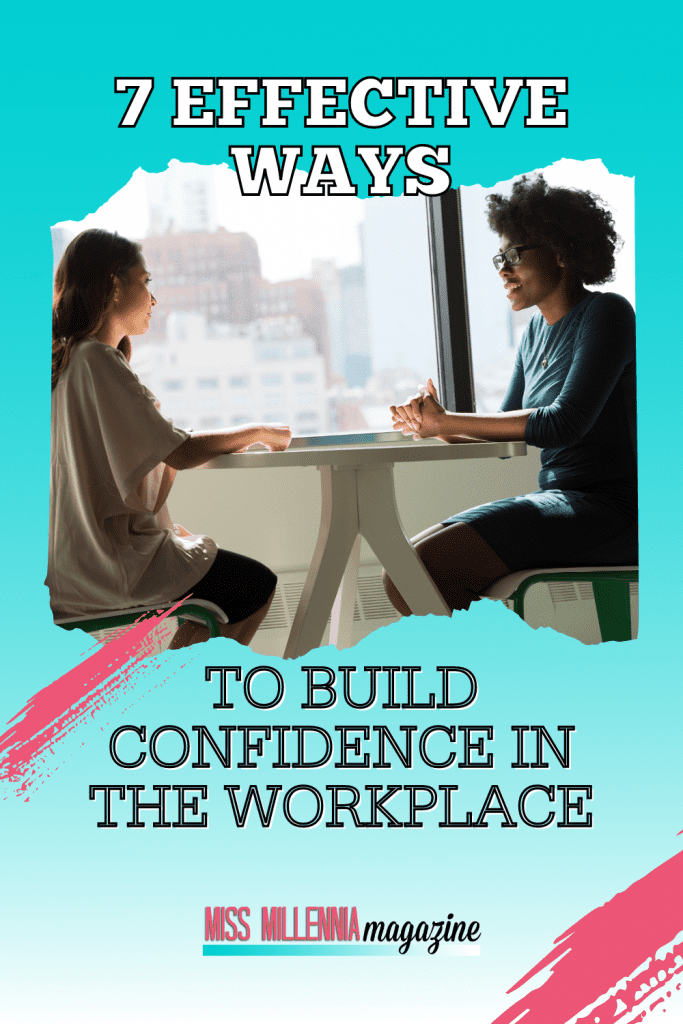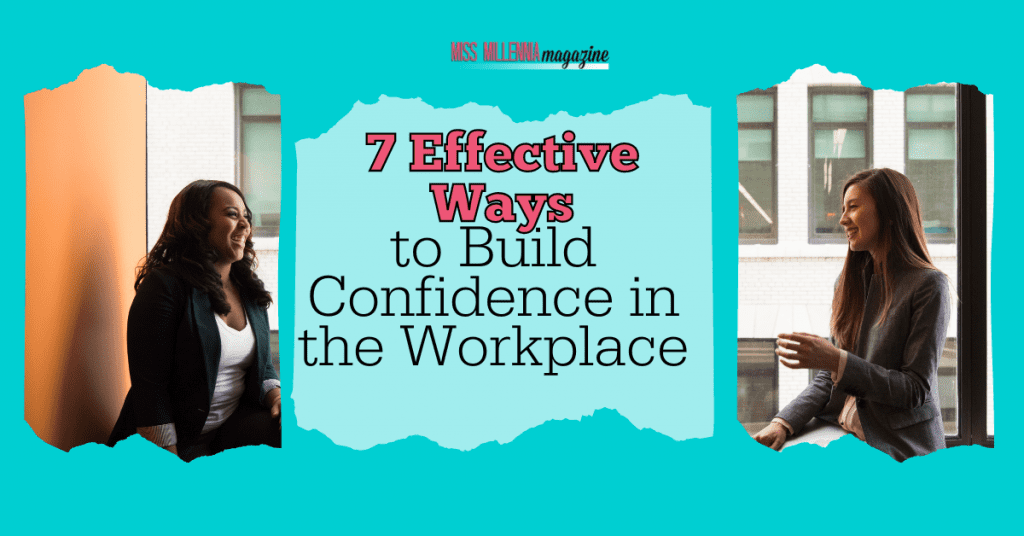7 Effective Ways to Build Confidence in the Workplace
Confidence is a critical component in the workplace. It can help you get ahead of your competition and impact your team. However, it can also be challenging to grow confidence, whether it be in the workplace or not.
This is mainly because pushing oneself reasonably challenges one. However, confidence will set you apart from your teammates and make you seem far more reliable.
So, how can you start building your confidence in the workplace and beyond? Well, here are some things to remember that all confident people know!
The Danger of Insecurity
and confidence is a prerequisite for success in any field. It is the backbone of one’s self-esteem and sense of worth. It can be the difference between succeeding and failing, achieving your goals or not. People with low confidence tend to have feelings of inadequacy, fear, and insecurity.
They often have an impaired quality of life and are more prone to mental health problems. It is easy to feel insecure when surrounded by people who seem better than you at what they do or when your abilities are not appreciated. Now that we have covered the dangers of insecurity, let’s dive into the power of confidence.
Why Should You Be More Confident at Work?
Overall, confidence is the key to success in your personal life and workplace. It will help you speak up and present your ideas, which can be crucial in gaining recognition and promotions.

Confidence can also increase your colleagues’ trust in you, increasing camaraderie. Employees who feel confident at work are likelier to produce higher-quality work and are less likely to get distracted.
This means that employees with high workplace confidence are better at completing tasks, more productive, and less likely to be absent from the office. How confident are you now?
Even if you’re a business owner, this only proves how important it is to work towards growing more confident. If you want to scale your business and take it to the next level, then you need to work on it, and confidence can help!
The Four Different Types of Confidence
Did you know that there are different types of confidence? Each class can have a different impact on a person. Let’s discuss those four types.
- Competence-based confidence comes from the feeling that you are good at your job and have the skills to do it well. You can develop this type of confidence by learning more about your career and improving your skill set.
- Belonging-based confidence comes from feeling a sense of belonging in a group or company. You build this confidence by finding the people who speak your language at work.
- Mastery-based confidence comes from feeling like you’ve mastered or learned something new and can do it quickly. This comes from being a fast learner and putting your all into understanding new tools.
- Self-esteem-based confidence comes from knowing that you deserve respect and appreciation for what you do. This comes from knowing your worth and showing up each day to do your best.
While all of these sound like a lot, there is no doubt that you will need all of them when it comes to growing confidence in the workplace. This article will discuss how to build your confidence in all four areas.
How to Build Confidence in the Workplace
You can do many different things to build up confidence in the workplace. Here are some of the major ones you will want to remember while on this journey to build self-confidence.
Create a Strong Sense of Worth
When it comes to the workplace, sometimes the insecurity or lack of confidence is mainly tied to the fact that you may think you’re not contributing much to the team or company. But it would be best to remember that what you do is valuable to the company.
Welcome Feedback
Do you think receiving feedback would help you out? Sometimes, that affirmation is all we need. Find someone who will give you honest feedback, whether positive or negative, so you can learn from it. Knowing your weaknesses gives you the blueprint to improve and grow confidently in your role.
Be Open to Opportunities
Seek opportunities for growth by asking questions, getting feedback, and trying new things. New opportunities mean you can learn and grow in your role. And learning new things is a great way to build confidence.
Practice Self-Compassion
You need to be kind to yourself by recognizing everyone around you. Sometimes, we’re our worst critics, but you must show yourself some love as you try to do your best! Remember to be kind to yourself when feeling down or struggling with challenges at work.
Consider Changing Your Image
Do you not feel like you? Have you wanted to change your appearance or other physical attributes? Sometimes, all it takes is sprucing yourself up to make you feel confident in your personal and professional lives.
This can include looking into Brazilian butt lift costs, getting a new haircut, exercising, or maybe even getting some new clothes! Just think about the small things that may cause some physical insecurity.
Practice Your Presentations or Speeches Out Loud
Speeches and presentations are two things you can’t avoid at a job. Even though that’s the case, they can still be quite scary, right? So, what can be done?

Well, one thing you can look into is just practicing. Yes, this is very generic advice, but if you want to improve your self-confidence in the workplace, adding cool interactive sessions to your practice routine can be beneficial.
Practicing aloud can help you identify problems with your presentation or speech before it is too late. It can also help you be more confident in your words. Practicing in front of a mirror is another great way to practice and see how your presentation looks.
Do Something That Scares You Every Day
As Elanor Roosevelt once said, do something that scares you every day. This mantra is one of the best ways to boost your confidence: going out of your comfort zone to try new things. This can be in your personal life, but you can take it as far as your professional life.
So, what are some things you can do at your job that would push your comfort zone? These could include giving presentations, attending events, or taking a course, but they can go far beyond that.

